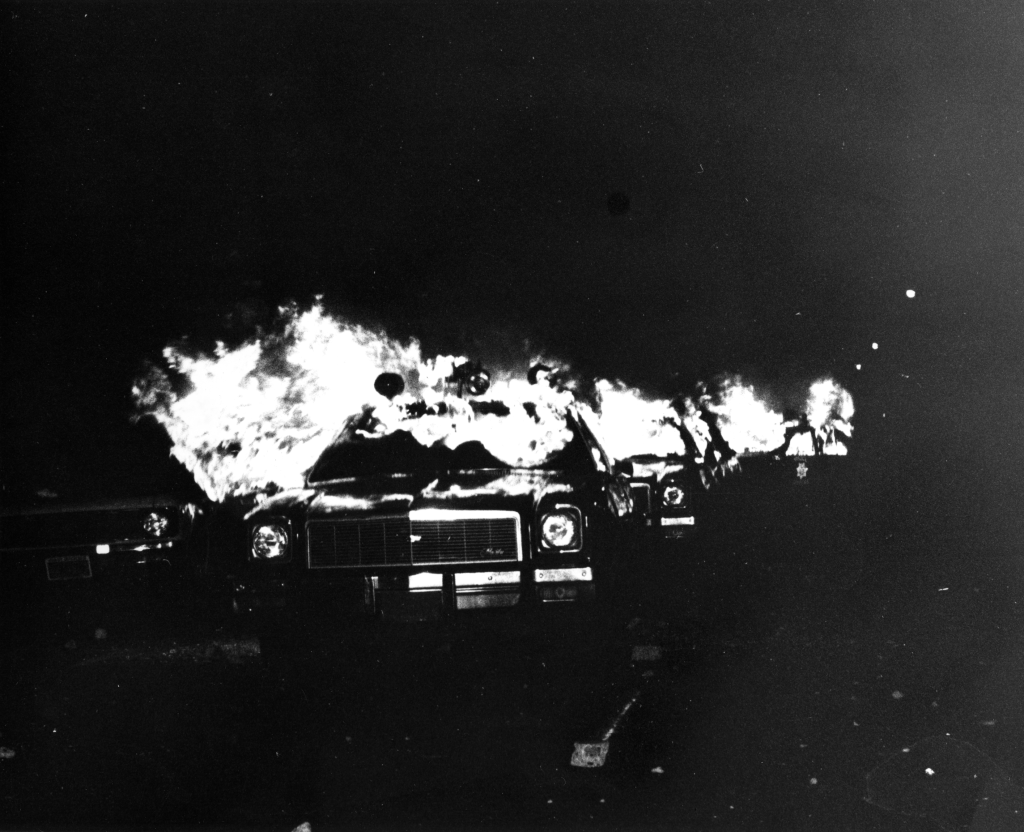We always felt that the police were the real enemy. —Sylvia Rivera
Bright lights shattered the dark anonymity of the dance floor. The flicker warned of the danger of the coming raid. Well experienced, people stopped dancing, changed clothing, removed or applied makeup, and got ready. The police entered, began examining everyone’s IDs, and lined up the trans/gender-non-conforming folks to be “checked” by an officer in the restroom to ensure that they were wearing the legally mandated three pieces of “gender appropriate clothing.” Simultaneously the cops started roughing up people, dragging them out front to the awaiting paddy wag- on. In other words, it was a regular June night out on the town for trans and queer folks in 1969 New York City.
As the legend goes, that night the cops did not receive their payoff or they wanted to remind the patrons of their precarious existence. In the shadows of New York nightlife, the Stonewall Inn, like most other “gay bars,” was owned and run by the mafia, which tended to have the connections within local government and the vice squad to know who to bribe in order to keep the bar raids at a minimum and the cash flowing. As the first few captured queers were forced into the paddy wagon, people hanging around outside the bar began throwing pocket change at the arresting officers; then the bottles started flying and then the bricks. With the majority of the patrons now outside the bar, a crowd of angry trans/queer folks had gathered and forced the police to retreat back into the Stonewall. As their collective fury grew, a few people uprooted a parking meter and used it as a battering ram in hopes of knocking down the bar’s door and escalating the physical confrontation with the cops. A tactical team was called to rescue the vice squad now barricaded inside the Stonewall. They eventually arrived, and the street battle raged for two more nights. In a blast of radical collectivity, trans/gender-non-conforming folks, queers of color, butches, drag queens, hair-fairies, homeless street youth, sex workers, and others took up arms and fought back against the generations of oppression that they were forced to survive.1

